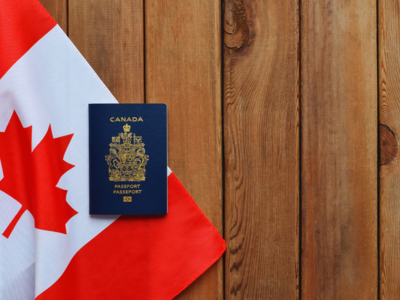ARTICLE AD BOX

By amending the Citizenship Act and addressing long-standing restrictions on citizenship by descent, Bill C-3 is set to provide a revolutionary change in Canada's citizenship regulations.
For the Indian diaspora and other immigrant communities, this legislative action is especially important since it aims to address the issues experienced by "Lost Canadians" and extend citizenship rights beyond the first generation born outside. According to the existing Citizenship Act, Canadian citizens can only give their citizenship to children born outside of Canada if they were born in Canada or became citizens before the child was born.
This "first-generation limit" has inadvertently kept many people from obtaining citizenship, especially those whose parents were also foreign-born and lived in Canada. As a result, many persons of Indian and other ethnic backgrounds have been left without a clear path to citizenship, despite having family in Canada.Read more: Best of the Gulf: 8 iconic landmarks in the GCC that will blow your mind
Key provisions of Bill C-3
Bill C-3, which was introduced by Immigration Minister Lena Metlege Diab, intends to remove the first-generation limit, enabling Canadian residents to provide citizenship to their children who are born or adopted overseas, regardless of where they were born.
The bill states that the Canadian parent must have been physically present in Canada for at least 1,095 cumulative days (three years) prior to the child's birth or adoption in order to guarantee a true connection to Canada.

The measure also aims to grant citizenship back to "Lost Canadians"—people who were denied citizenship or lost it as a result of out-of-date provisions in earlier legislation.This includes those affected by the earlier Section 8 of the Citizenship Act, which had stringent requirements that led to unintentional exclusions.Read more: 3-year citizenship no more? Germany’s new migration, visa freeze rules explainedThis legal amendment will have a substantial positive impact on the Indian community. The elimination of generational barriers will strengthen relationships and give their descendants simpler paths to citizenship, especially considering the large number of Indian-origin people living in Canada and their international family ties. This is particularly relevant given the difficulties Indians encounter in other nations, like the US, where immigration laws have gotten stricter.For Bill C-3 to become law, it must undergo the standard legislative process, including three readings in Parliament and receiving royal assent. Given the positive reception from immigrant communities and experts, there is optimism about its eventual enactment. Once passed, the bill will not only rectify past oversights but also reinforce Canada's commitment to inclusivity and recognition of its diverse populace.



.png)
.png)
.png)
















 10 hours ago
3
10 hours ago
3









 English (US) ·
English (US) ·